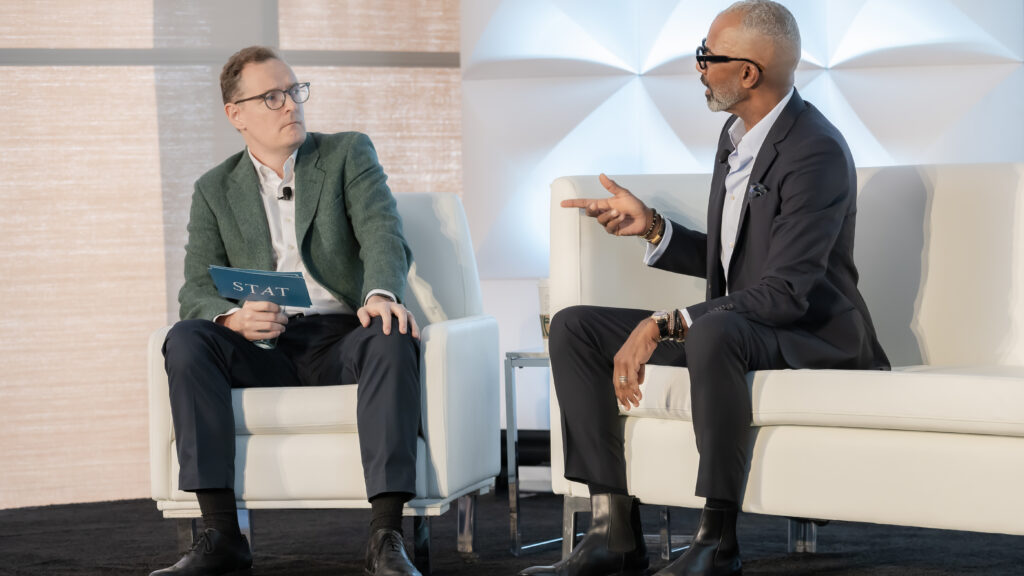Veteran biotech executive Tony Coles has been the man behind the curtain of two multibillion-dollar acquisitions and many more boardroom discussions.
But, publicly, he has arguably been just as active pushing the drug industry and other business leaders towards difficult conversations on corporate responsibility and race. Those conversations, he told the crowd at the STAT Summit in Boston Thursday, have been much more difficult.
advertisement
Coles has spent the last several years making his voice heard on issues such as the importance of diversity and drug companies’ onus to patients. On stage a matter of weeks before the U.S. presidential election, he urged industry leaders not to grow jaded with debates over drug pricing and other kinds of legislation.
“We get dragged down into the mire of all things that we have to contend with when we try to serve a population. We still have a great story to tell, and we should never be bashful about that story,” he said. “We have a responsibility as an industry to step up and be responsible corporate citizens, to remember what George Merck taught us in the middle of the 19th century — that if we focus on the patients first, the profits will follow.”
In 2017, Coles became a founding member of the Black Economic Alliance, which brings together business leaders from several industries to spur economic progress and prosperity in the Black community and elect Black politicians to office.
advertisement
He still serves as co-chair of the group, which is nonpartisan.
After years of public discourse and more private advocacy, Coles is still surprised by the extent to which race has become a hot button issue for parties. In cases in which the Black Economic Council has gotten involved in local politics, the group has sent letters to Democrat and Republican politicians alike. Not one Republican has responded to its inquiries. Coles recalled the response of one figure, in particular.
“I will tell you that — and this is a very high-profile elected official — who said, ‘Tony, I would really want to support the organization, but it has ‘Black’ in it. And as a result of that, I can’t be seen as supporting anything that has the word ‘Black’ in it.’ That’s a direct quote,” Coles said.
Until last year, Coles had been serving as the chief executive of biotech startup Cerevel Therapeutics. That company has since been acquired by pharmaceutical giant AbbVie. Though he had stepped down from the company a few months prior, the deal was still seen as a significant win for Coles, particularly after his last company, Yumanity Therapeutics, had failed.
Coles co-founded Yumanity with scientist Susan Lindquist, who had studied protein folding and conditions like Alzheimer’s and Parkinson’s disease. The startup had raised hundreds of millions of dollars and even went public, but in 2022, ran out of money and essentially dissolved as part of a reverse merger.
That experience, Coles said, underscored the importance of keeping a company’s bank coffers full. But he told the crowd that Yumanity may ultimately be a success story: Lindquist, who died from ovarian cancer shortly after the startup launched, had made Coles promise to continue developing Yumanity’s lead drug for Parkinson’s disease.
“I went to see Susan a day before she passed away. She’s in the hospital bed, lucid, clear of mind, and she said, after many, many things, she looked up at me, and she said, ‘Tony, whatever you do, please, please, please see that this drug gets to patients,’” he recalled.
advertisement
Coles persuaded Johnson & Johnson to purchase and continue developing the startup’s Parkinson’s therapy.
“So, time will tell whether we’re right,” he said. “But if we were right, that failure all of a sudden looks like a really important success for patients.”

